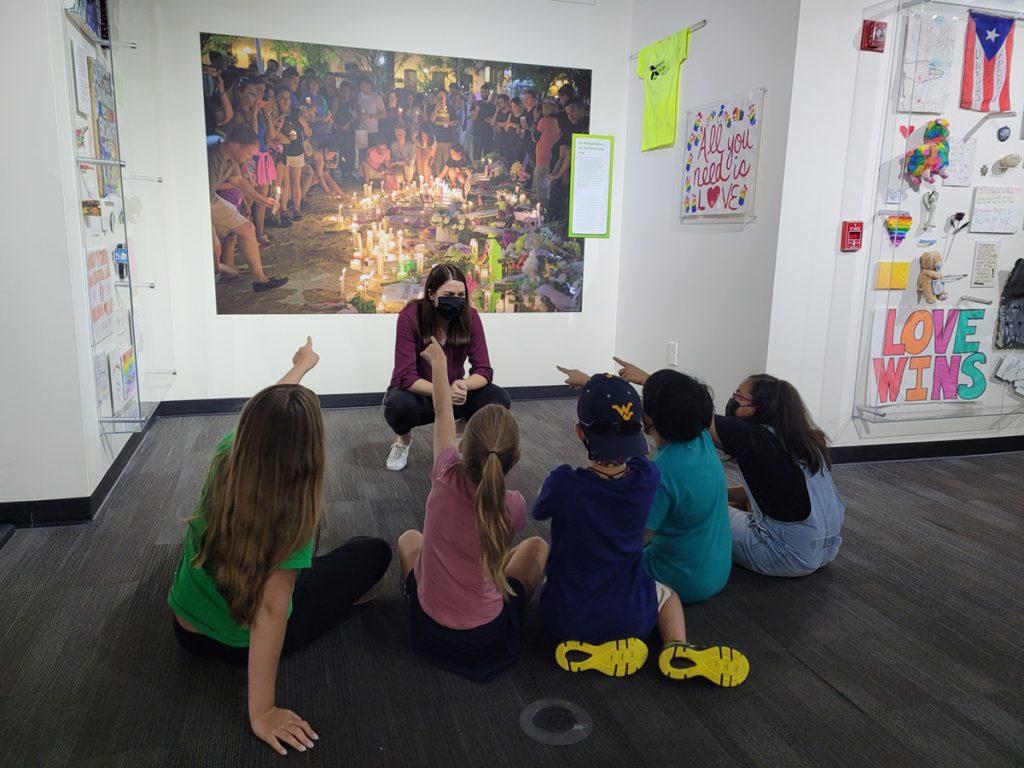by Shannon Elliston, school services manager, from the Fall 2021 edition of Reflections magazine
Before my work at the History Center as school services manager, I was an education specialist at the 9/11 Memorial and Museum in New York City, helping to develop and facilitate the first three years of youth programming when the museum opened in 2014. During my time there, the number one question I received from visitors was, “How can you do this every day?” It became impossible to not reflect on that question myself.
For one thing, I have always seen a value and importance in engaging with difficult history. With children, we often worry about starting these conversations too young. Where do we draw the line between a conversation that is helpful versus harmful? Through my experience, I found that there are meaningful lessons to take away from this history at any age.
Teaching about 9/11 in this generation presents its own unique challenges. We experience an intersection of history and memory where teachers and parents are remembering their own personal, lived experiences of that day, and students are often learning about this history for the first time.
Knowing this, it becomes important to remain focused on why we teach about the event and what we want students to take away. It is important for students to understand how profoundly their world has been shaped by that day, and the lasting repercussions we still see. However, it is just as important to understand the themes we saw come from that day – unity, strength, compassion, hope. On our darkest day, we saw the capacity that we have as humans to come together to overcome tragedy.
My experience at the 9/11 Museum has informed everything I have done and will continue to do in my career. Here at the History Center, working with students on topics such as the Ocoee Massacre of 1920 and the Pulse tragedy, I rely on these lessons and themes daily.
Each year on the remembrance, we reflect on the unity we witnessed in the aftermath of 9/11 and how it can inspire us to be better people. If we carry this same sense of empathy into teaching about all history, students will be better for it.


